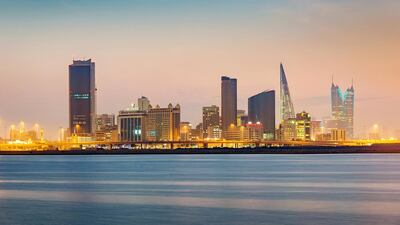The occasion of Bahrain's national day on Saturday offers us the opportunity to reflect upon some of the country's successes. For those who have visited the kingdom, a salient trait is the friendliness of its people to foreigners, which has contributed to Bahrain's consistently high ranking in HSBC's annual Expat Explorer report. What economic factors account for Bahrainis being considered friendlier than the perennial favourites, including Americans, Germans, and Swedes?
Bahrain’s location and ethnic composition implies Arabian, Bedouin cultural ancestry; but the archipelago has also had a high level of exposure to foreign cultures. Bedouin Arabs usually live in harsh deserts that repel non-natives. In contrast, Bahrain’s natural springs and convenient location made it an attractive stop for merchants and travellers since antiquity. This rare combination distinguishes it from many of the neighbouring Bedouin territories, as well as the trade hubs of the Mediterranean. How does this engender friendliness to foreigners?
__________________
Read more:
Jumeirah expands into Bahrain with a five-star hotel
Bahrain Bourse expects more IPOs, Reits listing in 2018
Executive travel: Business and pleasure in Manama’s Downtown Rotana hotel
__________________
The easy part to explain is the role of being on trade routes, because it’s a basic customer service argument. If you want to make money from being a transit point for merchants, then you should cultivate a reputation for being friendly to strangers. This is reinforced by the automatic exposure one gets to diverse alternative cultures; psychologists have established a clear link between traits such as tolerance, and past histories of engaging foreign viewpoints, especially when something good – like trade windfalls – comes from those interactions.
In contrast, the abrasiveness that one sometimes finds in mountainous peoples can be partially attributed to their segregation from alternative cultures.
The role of Arab Bedouin culture is harder to analyse. The acute difficulty of eking out a living in a desert creates two mutually reinforcing reasons why you might wish to be kind to strangers.
First, in addition to being harsh, life in the desert is very risky, too: you could find yourself without food or water at any point. Therefore, for groups to survive, they need to develop a strong culture of reciprocal giving in times of need. Today, you have run out of water, so I will share mine; because inevitably in the future, I will run out of water and need to ask you for help.
Second, the riskiness of life in the desert is a double-edged sword, because it can also push people to raid others when their supplies are running short, rather than seeking help. A survival strategy in a highly competitive, zero-sum world is to project fortitude, and one way to do that is to treat strangers so well that they think that you must be incredibly powerful – and therefore are not to be challenged.
Having natural springs means that life in Bahrain was not quite as tough as in somewhere like Najd, in inland Saudi Arabia, but many of the tribes in Bahrain originate from these tougher environments, leading to this shared culture.
If the above argument seems a little post hoc, that is because culture is itself very random and, in many cases, reflective of historical accident rather than economic forces. Moreover, cultures develop: Bahrain’s strong relationship with India, which blossomed during the 19th century when both fell under the British sphere of influence, has had a lasting effect on the local culture, especially the cuisine and language, that distinguishes it from neighbours such as Saudi Arabia.
However, it remains instructive to search for historical clues to explain the remarkable sense of comfort that foreigners describe when they visit the kingdom. And if you think that I am exaggerating, I invite you to come and see for yourself.
Omar Al-Ubaydli (@omareconomics) is a researcher at Derasat, Bahrain

